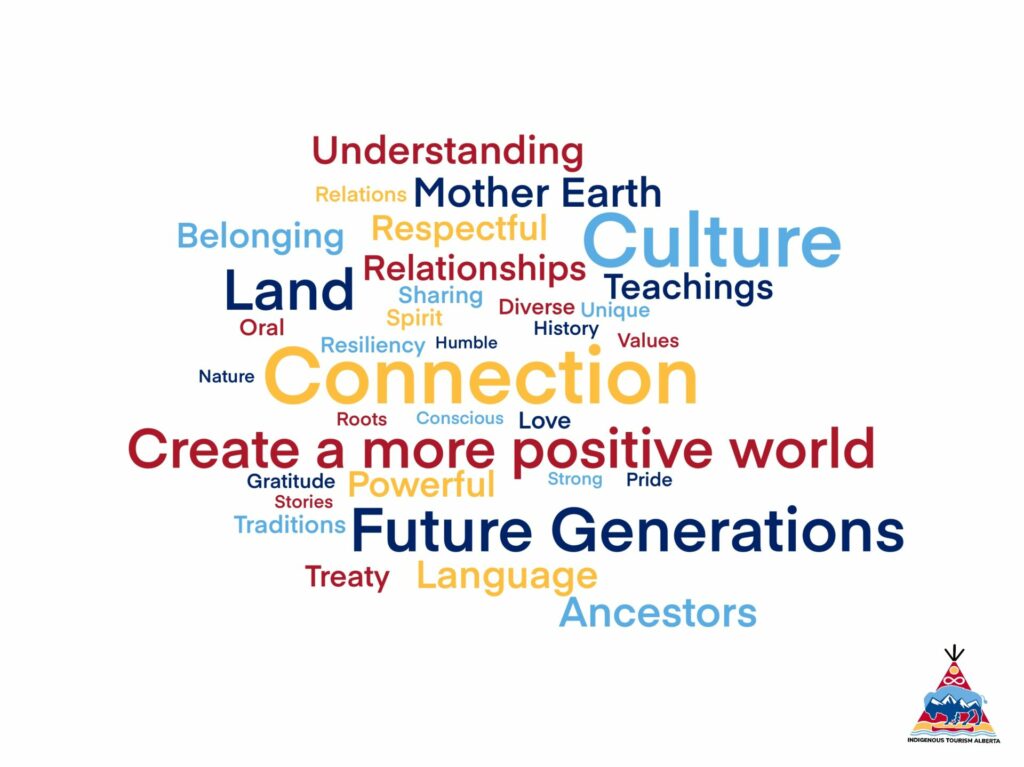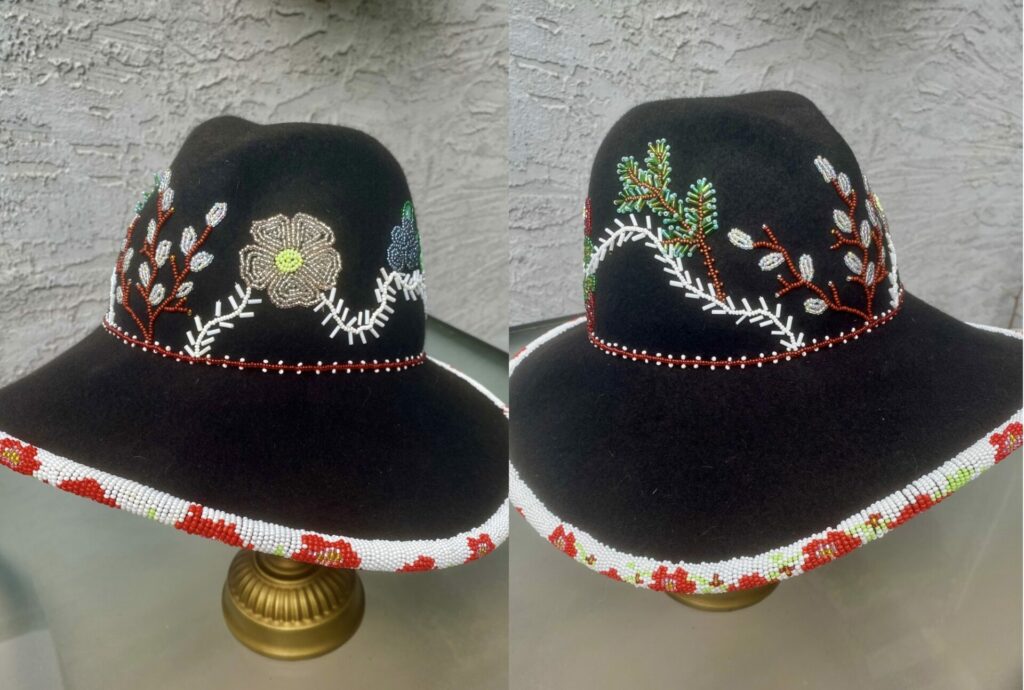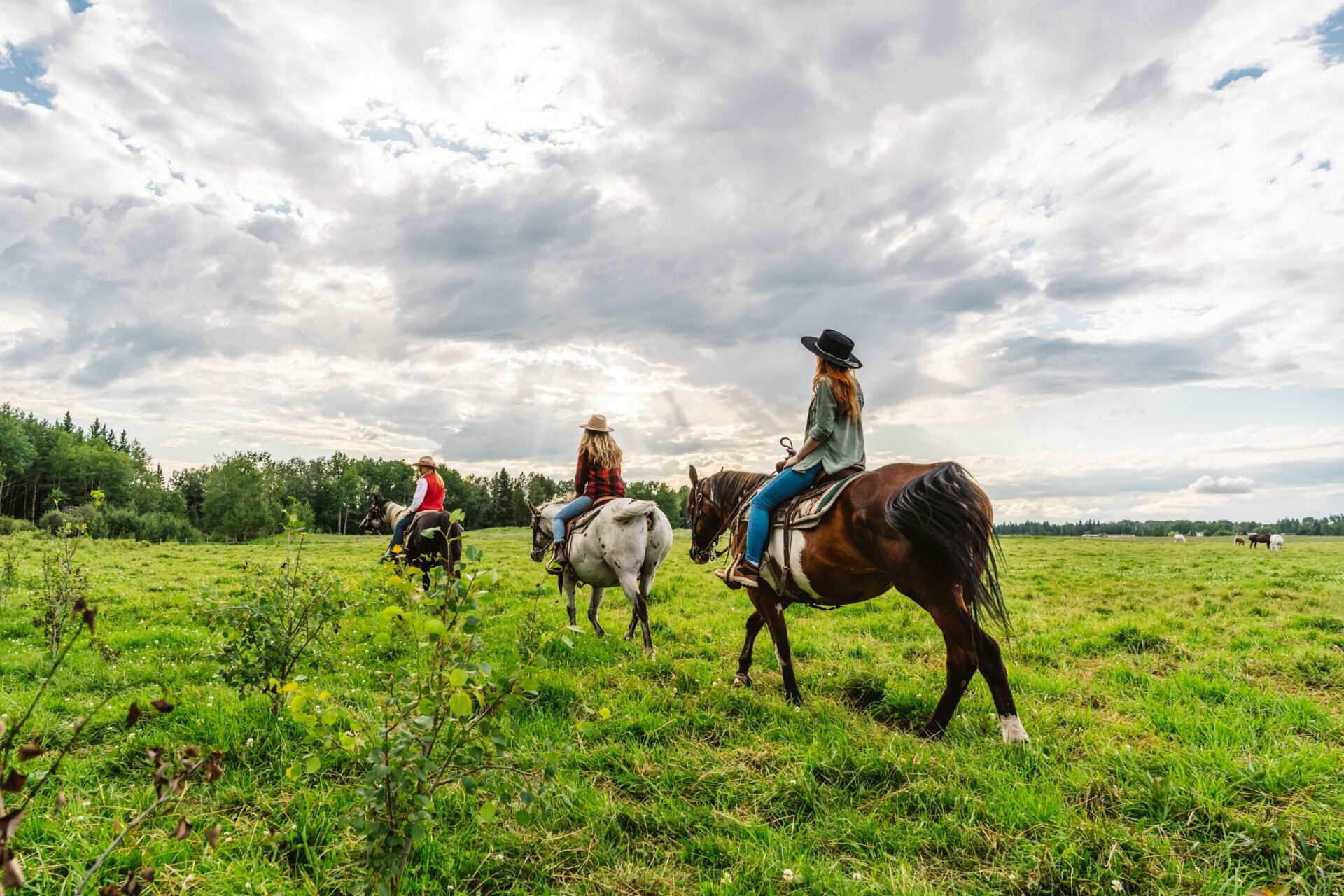
Honoring National Indigenous Peoples Day 2021
In honor of National Indigenous Peoples Day on June 21, 2021, Indigenous Tourism Alberta (ITA) members offer a way to connect while also supporting Indigenous tourism across the province. Now, more than ever, as we look to re-educate ourselves on the true history of Canada, we have a meaningful opportunity to authentically connect with Indigenous cultures and stories that have been here since time immemorial.
June is National Indigenous History Month, with celebrations occuring on National Indigenous Peoples Day on June 21. Recognizing the cultures and contributions of First Nations, Inuit, and Métis peoples, National Indigenous Peoples Day is an opportunity to support Indigenous businesses while getting out and exploring all four corners of the province in a meaningful and enriching way.
More than any year before it, this Indigenous Peoples Day is vital to our population’s truth, education, and continued growth. ITA members provide unique and diverse experiences that connect visitors to understanding more about Indigenous ways of knowing and being. Since time immemorial, Indigenous cultures have been here and will be carried on to future generations to create a more positive world.

Indigenous Tourism Alberta shares gratitude for the meaningful contribution of members across the province this National Indigenous Peoples Day, 2021. The diversity of ITA’s membership is reflected in the experiences they offer, the nations they come from, and the culture and teachings they share to help create a better world. Indigenous Tourism Alberta would not exist without all the incredible human beings who are members of this organization.
During this time, we acknowledge the heaviness in our hearts in finding our missing relatives at residential schools across the country. The grief is felt throughout Indigenous communities across the world. We honor our lost ones this National Indigenous Peoples Day by sharing light on members who are here, who are making positive change in their communities by creating meaningful experiences that will help our relatives and visitors better understand the truth of who we are as Indigenous peoples.
ITA connected with members across the province for this year’s Indigenous History Month and asked, “what does being Indigenous mean to you?” and “why is it important to you to share your culture?” to highlight the diversity of Indigenous peoples working in tourism across Alberta. We give thanks to the members who were able to share their voices and perspectives. It is essential during this time that Indigenous voices are heard and amplified so that the Canadian collective and visitors can learn and understand from an authentic source.
“Being Indigenous to me is about connection, a thread that can’t be seen, only felt. This thread is a link back to my ancestors and forwards towards the generations to come. The thread is a link to the land, to all that lies in nature, and the many gifts that Creator has sent both to Mother Earth and in the Sky World. It forms a web to let us know that no matter where you are on that web, you connect with all relations and that what we do on one part of the web is felt everywhere. This is ingrained in the teachings shared and passed down to me.
I share my culture to do many things. It fosters understanding between different cultures and highlights where we are the same. Sharing my culture helps educate and bridges gaps. Knowledge from a traditional perspective is meant to be shared, and knowledge about my culture, in particular, needs to be passed on. I also share my culture because it connects people to the land, and when they go back home, the experiences they had with us helps them to reconnect to their own land. These teachings are so important to keep, we need to always remember [these teachings] in gratitude.“
Brenda Holder from Mahikan Trails
Acrylic Painting by Shawnadel Izzard-Youngchief from Kehewin Cree Nation (Treaty 6), Self Portrait, 2021 Xpressions Program Graduate and Nehiyawaskiy Indigenous Peoples Art Co-op member.
“Being Indigenous is being respectful, humble and conscious that we are all connected.
Sharing my culture creates a richer, more positive world for future generations.“
Donna Webster from Lac La Biche Canadian Friendship Centre
“You know it’s funny, I never asked to be born Indigenous. I’m playing the cards I was dealt. Growing up with my parents, siblings, kokum’s and moshums, we often grew up without. But the lack of material can’t compare to growing up with an abundance of belonging. To be Indigenous is to belong. To be Indigenous is to accept. To be Indigenous is powerful. To be Indigenous at times is to be vulnerable. But at all times, cognizant of the heart.“
Marcel Arcand from Alexander Cree Nation

Grant Berg, Mother of the Forest, cedar sculpture 12 H x 9 1/2 D x 6 W, owner of Grant Berg Gallery in Grande Prairie.
“Growing up I was very close to my Cree Grandmother, she had the most beautiful soul of any human I have ever met. She has been gone for almost 25 years and as time passes by the image of her grows and what she taught me becomes clearer. I am known for my tree sculptures on a stone base/landscape. The trees are long and flowing, they are a metaphor for growth and adapting in a place where your roots run deep. Often in the harshest of conditions, rooted in rock, drawing water where none seem to exist. The tree however grows and adapts to where its roots are deep, it reaches for the sun. The tree bends to the prevailing winds, the more harsh the conditions, the more unique and beautiful the tree becomes.
Often in my trees a female form will reveal itself and it is my job as the artist to blend the female and the tree as one form. On a personal level, it is my Grandma that I pay tribute to, and on a more universal level, the female is Mother Nature, who over time, shares the same face and spirit for me.
I was asked, why is it important to celebrate my Indigenous heritage? I see it more as to honour my heritage with respect and humility. My Grandmother weathered one of the greatest cultural storms in the history of this continent, a storm which claimed many in her family. My Grandma raised eight outstanding children and I, to this day, benefit from that. I recognize her struggle and the lessons she worked to teach me. She had no advantages, but I recognize [the advantages] that she left for me. I cannot let that pass with apathy, rather I must make our ancestors proud and show that their fight and teachings shine 100 years later.“
Grant Berg from Grant Berg Gallery
“It is hard to think about [what it means to be Indigenous], because it is not something I conceptualize, it is just the way we are and the way we live and carry ourselves. When I do think about it, I think about our rich history and how connected we are to the land. Our uniqueness, our ability to tell stories. The amount of pride that we have behind being Indigenous, how strong and resilient we are. It is about having the strength of thousands of ancestors. We have a political stand, living in a colonial country. Trauma caused by colonialism that has lasted a couple of hundreds of years is much lesser than many thousands of years of our beauty and development.
It is important to bring awareness, to share how diverse our cultures are. How different landscapes determine what we eat and how we live. It is a responsibility for our generation to pass down knowledge and not keep it to ourselves, to learn and to share within the Indigenous community.”
Scott Iserhoff from Pei Pei Chei Ow Indigenous Contemporary Cuisine

Beaded Hat by Matricia Brown from Warrior Women
“To me, it means that I come from a very rich and unique culture that I am proud to embrace. It also means that we as Indigenous people live somewhere between the modern world & the traditional world.
Being Indigenous is both a challenge and a blessing and I will forever stay true to my roots.
For me personally, I believe it’s important to share facts and to share different aspects of my Cree culture. My family’s extensive history within the Jasper & Grande Cache region is very significant and I think many people who are and aren’t Indigenous are not familiar with the history of the evicted Cree & Metis families who played a significant role in shaping the Rocky Mountain Cree culture I belong to. “
Lauren Moberly Lightning from Fallen Mountain Soap
“People have often heard me refer to Métis people as the Spirit of Treaty.
To me, being Métis is a promise. The promise to love one another. To help one another. The promise to work together to create a better way of being.
In order to do that, we need to be able to find our way into the heart of our mother’s being, which ultimately is to always be respectful of the land we walk on, the water which gives all life and the very air that we breathe.
With that at the core of our being, with that as the fertile soil in which we grow, who we are as a nation, we then tap into the ingenuity of our father’s determination and we utilize the power that can bring to our hands to help build a better world.
That way of being, our way of being, was once the promise of Canada. And I believe that if Canada turns back towards the Indigenous people of this land, rather than turns her back on them, we can realize this promise, together.
That is what being Indigenous means to me and why it’s important to share who we are as Métis people, and to share it everyday, not just on National Indigenous People’s Day.“
Joe Urie from Jasper Tour Company
“Together We Have Hope”, Oil and Acrylic mural by Keegan and Amanda Starlight. It represents all the Nations coming together and staying true to what it means to be Indigenous in Canada and to stay strong. @keegan_art @cleverfoxcustoms
Elders from Edmonton Aborginal Seniors Centre:
“That people of the Americas and their descendants have origins in North and South America for more than 15000 years.
We have a rich oral history that bonds with Mother Earth and [we] must advocate to our educational systems that our traditions, culture, and history be recognized, introduced, and changed from what presently exists.“
Arnie Vivier
“We are from the Land and of the Land. We have been here for thousands of years. We need to share our stories to help build relationships/partnerships with mainstream Canada and other Nations.“
Bert Auger
“Being Indigenous to me means being able to learn about my culture and language so that I can understand both the language and culture by taking part whenever the opportunity arises.
It is important to me to share what I have learned about my culture to the younger generation so that they can learn and understand the Indigenous culture whenever possible for them.“
Rose Marie Sudholt
“I have a connection to this land, this place.
I literally walk on the soil that contains my Ancestors that have lived and looked after this land for thousands of years.
Being Indigenous is my way of life, how I think, the teachings I receive, and my culture.
It is more than just blood. It is how you were raised, your values, and how you view the world.
Colonization tried to eradicate my people, language and culture.
It is important to me to keep our traditions alive and to pass them on to my children and others.
I feel the world can use our views to make our planet a safer place for all.“
Samaria Cardinal from Mystical Métis
Indigenous Tourism Alberta is grateful for the opportunity to highlight the wisdom of members for 2021’s Indigenous History Month and National Indigenous People’s Day! Supporting Indigenous businesses is an essential part of helping support the healing and success of Indigenous peoples in Canada. ITA promotes Indigenous Tourism as an authentic way to learn about the truth of history and a unique understanding of the world that is so connected to the land. Immerse yourself in Indigenous culture this summer by supporting ITA members, an experience can be found here.
